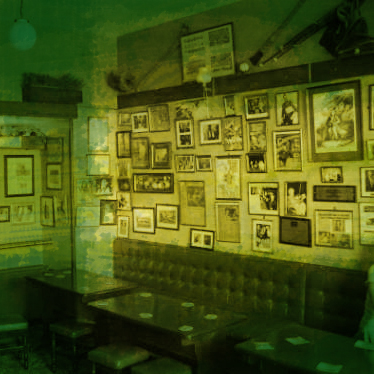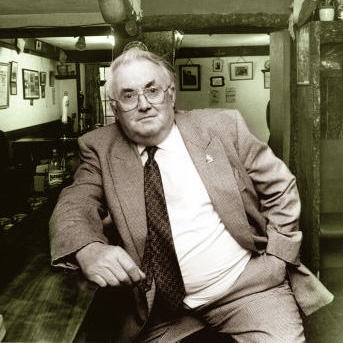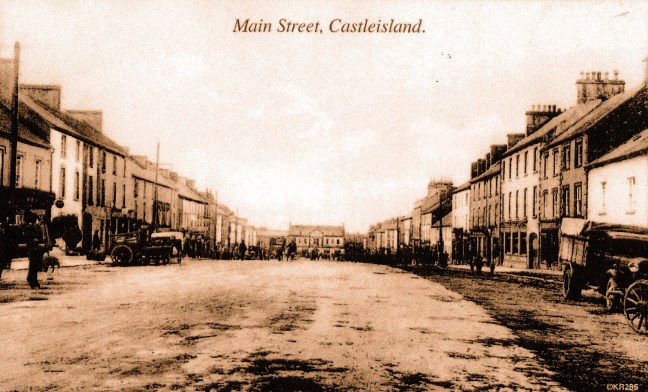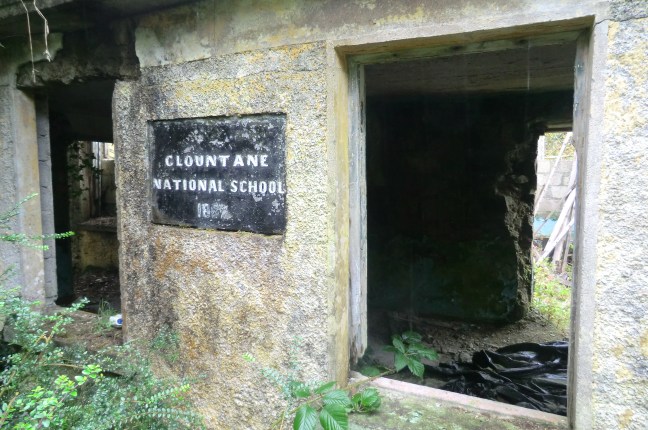Originally published in The Journal of Sliabh Luachra, Cumann Luachra, Vol 12
Born on the side of the bog
I may as well start off with a line from a well-known song: “My Grandmother lived on the side of the bog”. That’s exactly where I came from – on the verge of Lyretough bog in the eastern part of Kilcummin parish. Those of you who are not too familiar with Sliabh Luachra, might think that being born in such an area might be a very dull place to live, but this is certainly not the case. Sliabh Luachra is a place of great enjoyment and merriment. All during the summer months, there were people going to and coming from the bog. The County Council also cut turf all around us. I suppose you could say it was the first industrial estate. Local farmers had plots of bog around the place and there were meitheals everywhere. Our house was like a holiday home with people calling and parking bikes in the yard, coming in to boil the kettle and leaving sleans and pikes in our shed overnight. This caused great excitement for us.
A house of Music
The house I was born in was a house of music and singing. My mother’s name was Lizzie Coakley. She had two sisters, Maryanne and Nora, and two brothers, Danny and Paddy. They could all sing and my uncle Paddy was a renowned singer – a really great singer. I learned a lot of songs from him when I was a young lad and he gave songs to lots of others too. He was a shy man. He wouldn’t go down to Petro’s or to Barraduff to sing a song in the pub, but he was a great entertainer and he always sang at the stations, or house dances, and he also played the melodeon. He was a very good polka set player.
My father’s name was Jim Brien. He was born at Inch , Kilcummin. When he married my mother he moved down to Lyretough. He was a great character and an all round man. The longest memory in my head is of him putting down a platform for dancing at Charlie McCarthy’s sandpit. They danced there every Sunday evening. Jackie Fleming and the McCarthy brothers played there and the dust was always flying.
School days and growing up
We all went to Anabla School. I never liked going to school, but I got on alright – my big disappointment was that I never made the singing class!
We grew a bit older and moved on a bit. Doyle’s was a great house for all the young lads. We had great excitement there; it was music all the time. I used to go to Doyle’s every night because they had a melodeon and I wanted to learn a few tunes. The lads would be gone out kicking ball around the field and I’d stay inside by the fire trying to learn a couple of tunes. A very nice old man from next door, by the name of Bill Doody, would call in and sit down by the other side of the fire. He liked to hear news from the town of Killarney, where I was working. I wasn’t inclined to give him too much attention because I was more interested in learning a few tunes. Something happened one day in town and he wanted to know all about it, so I was giving him the details with my head down and I trying my best to play this old tune. He got impatient with me and he said “Christ Brien , you’re there every night with your doorey darie and you’re getting nowhere. In the name of God couldn’t you throw it away from you?” I took his advice and that was the last of my musical career.
To Work and To America
I served my time as a mechanic in Culloty’s garage in Killarney. I served my full time there and I stayed on for a while after qualifying. I was courting a girl by the name of Mary Cronin, who was to become my wife. We both decided to go to America and worked in New York. I never intended staying in America. I never cared about it, so, when we got a few dollars together, after two and a half years, I saw a pub for sale in Killarney by the name of Cornelius Healy’s. It was advertised in the” Kerryman”. I knew the pub well because I had worked across the street from it in Culloty’s for seven years. I rang Con O’Healy and asked him how much he wanted and we bought the pub over the phone. The asking price was£3000.00 and after some bargaining I bought it for £2750.00. We came home in 1961 and opened the pub. I never thought of being a publican when I was young, but we said we’d have a go at it and as the saying goes, the rest is history. I must say the support we got over the years has been fantastic.
Music and song in the bar
Though I didn’t make it as a musician myself, I was never let down by the musicians of Sliabh Luachra. All were great men and women: Denis Murphy and Julia Clifford, Johnny O’Leary, Dan Leary, Jimmy Doyle, Paddy Doyle, Sonny Sweeney, Sonny Riordan, all the Cronin family that played in my pub and all the great singers like D.D. Cronin, Pat Tade Mick Cronin, Jim Kelly, Garry McMahon, Jerry Mac and Bridie and all the great characters. Mick Cronin from Gneeveguilla, Mrs. Dennehy, Jer Kelly and Christy Cronin were among the many great singers.
Over the years, we had some mighty music sessions in the bar. Ciarán MacMathúna did a lot of recording in the house throughout the 60’s and 70’s. Ciarán should never be forgotten. He made sure that all the great music and songs of Sliabh Luachra were collected. I often had the privilege of having the late Seán Ó Riada call to my pub and Con Houlihan was another person I idolised.
Stories from the pub
Publicans hear great stories. One day a man came into the bar to me with a theory that hurling originated in Sliabh Luachra. Problem was, however, that the ball kept getting lost in the rushes and they got tired of looking for it. They then got a big ball but it was too big to hit it with a stick. Then they threw away the hurleys and started kicking the ball instead. That’s how football started – at least that’s what the man told me! He swore it, ‘pon my soul. I remember great nights with the musicians. Professor Ivor Browne was in one night with Denis Murphy and when he was pulling on the pipes he said to Denis “I don’t know if I will be able to play at all. I am very busy with work.” Denis looked at him and said, “If work is interfering with your music, Ivor, give up the work.” That’s a lovely attitude to have to life.
Fair Mornings
On fair mornings we opened at six o’clock – ourselves, Christy McSweeney’s and the Arbutus were the only ones that opened, that early. A lot of deals were made in the pubs and it was great for business.
There are some lovely stories told about fair days, like the one about the woman who sent the husband off into town to sell the cow. He was a bit worried because it was his first time at the fair. She said to him, “sell that little cow whatever you do because we have no feeding and the cow is going dry. We’ll get a drop of milk from the neighbours till the springtime – make sure you sell her”. He said ” I was never before at the fair, what am I going to do? She told him to stand in the middle of the fair and you’ll know what you should get for the little cow. In the evening, he arrived home again with the cow. His wife said “Oh Jesus Jack you didn’t sell!” He said, “No Mary, but very near it. The fellow next to me sold.”
Football my other great Passion
Times were good in the bar in the 70’s, but the highlight of all for me was to see the man from the side of the bog, Ambrose Donovan, Taking the Sam Maguire Cup out home to Gneeveguilla. That was the highlight of my football world.
We have received great support from all the Kerry teams down through the years. These were the nice things that happened. I must say that all the East Kerry Clubs gave me great support and are still supporting me and I am very proud and thankful to them. It was great to see Donie O’Sullivan, of Spa, captaining Kerry. Other Kerry players such as Paudie O’Mahony, Johnny Culloty, Mick Gleeson and Din Joe Crowley also had Sliabh Luachra connections and I got to be great friends with all the lads around the place.








































